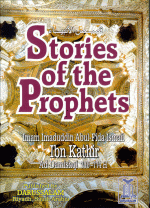Stories Of The Prophets


Prophet Shia (Isaiah)
Isaiah
and Hezekiah
Among the prophets between David and Zakariah is Isaiah
(pbuh), Ibn Amoz (Amisiah). According to Muhammad Ibn Ishaaq, Isaiah
(pbuh) appeared before Zakariah (pbuh) and Yahya (John the Baptist)
(pbuh). He is among those who prophesied about Isa (Jesus) (pbuh) and
Muhammad (pbuh). The king during his time was called Hezekiah (Hazkia).
He listened and was obedient to Isaiah in what he advised him to do and
prohibit for the good of the state. Affairs took momentum among the
Israelites. The king became sick with an infected foot. While he was
sick, King Sennacherib (Sinharib) of Babylon advanced towards Jerusalem
with sixty thousand men.
Allah Grants More Life
to Hezekiah
The people were greatly terrified. The King asked
Isaiah: "What did Allah reveal to you regarding Sennacherib and his
army?" He replied: "He has not yet revealed anything to me." Then the
revelation came down for King Hezekiah to appoint a successor, as he
wished, because his end was at hand. When Isaiah told him this, the
king turned to the qibla (the direction faced in prayer); he prayed,
glorified Allah, invoked Him, and wept. Weeping and invoking Allah the
All-Powerful and majestic with a sincere heart, trust and patience, he
said: "O Lord of lords, and God of gods! O, Benevolent and Merciful One
Whom neither sleep nor nodding can overpower, remember me for my deeds
and my just judgment over the children of Israel; and all that was from
You, and You know it better than I do, my open acts and my secrets are
with You."
Allah answered his prayers had compassion on him. He
revealed to Isaiah to tell him the glad tidings that He had compassion
for his weeping and would extend his life for a further fifteen years
and save him from the enemy, Sennacherib. When Isaiah told this to
Hezekiah, his disease was healed. Evil and sadness departed, and he
fell prostrate, saying: "O Lord, it is You Who grants kingship to
whomsoever You wish and dethrones whomsoever You wish and elevates
whomsoever You wish and degrades whomsoever You wish, Knower of the
unseen and the evident. And lo! You are the First and the Last; the
Manifest and the Perceived; You grant mercy and answer the prayers of
the troubled ones."
When he raised his head, Allah revealed to Isaiah to
command the king to extract the water of the fig and apply it to his
sore, and he would be whole and cured. He did so and was cured.
Allah Destroys
Hezekiah's Enemies
Then Allah sent death upon the army of Sennacherib. In
the morning they were all corpses, except Sennacherib and five of his
companions, among them Nebuchadnezzar (Bukhtanasar). The king of Israel
immediately sent for them, put them in shackles and displayed them in
the land for seventy days to spite and insult them. Every day each of
them was fed a loaf of barley bread; after seventy days he confined
them in prison.
Allah then revealed to Isaiah that the king should send
them back to their country so that they might warn their people what
would happen to them. When they returned, Sennacherib gathered his
people and told them what had happened to them. The priests and
magicians said to him: "We told you about their Lord and their
prophets, but you did not listen to us. It is a nation which, with
their God, nobody can overcome." So, Sennacherib was afraid of Allah.
He died seven years later.
Israel After
Hezekiah's Death
Ibn Ishaaq also reported that when King Hezekiah of
Israel died, the Israelites' condition deteriorated; there was
political confusion, and their wickedness increased. Isaiah preached to
them what Allah revealed to him, directing them to righteousness and
warning them of Allah's severe punishment. His preaching made him their
enemy and they decided to kill him, so he escaped from them.
Isaiah's Death
Ibn Ishaaq also reported an Israelite interpolation
which said that when Isaiah was passing by a tree, it opened, and he
entered therein; but Satan saw him and held onto the loop of his
garment so that it stuck out. When they saw it, they brought a saw and
sawed the tree, and him with it. Indeed, from Allah we come and to him
we return.
